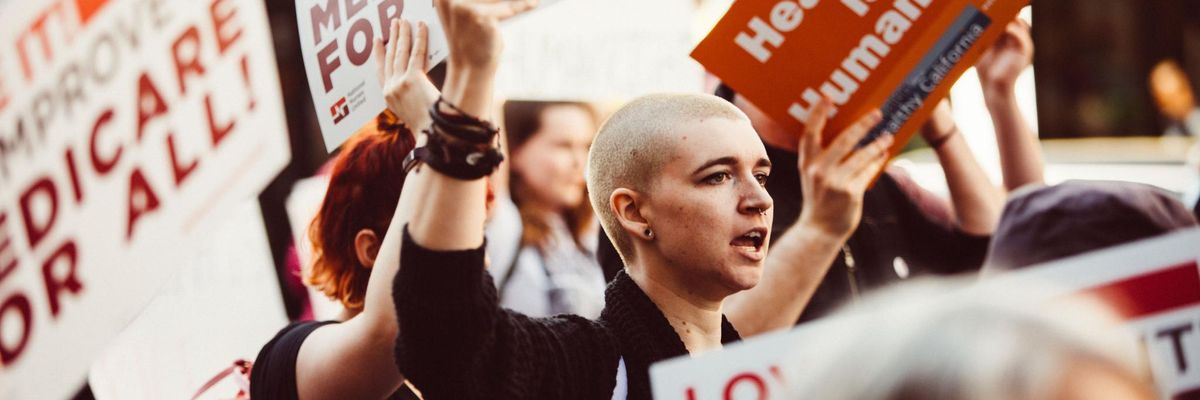While the Trump administration and Republicans in Congress spent the last year making repeated attacks on the nation's healthcare system and the Affordable Care Act (ACA), 2017 saw the largest single-year jump in the uninsured rate since that law was implemented in 2010.
According to the Gallup-Sharecare Well-Being Index, released on Tuesday, more than three million Americans lost their health coverage in 2017, bringing the uninsured rate up to 12.2 percent. The end of 2016 saw a record low number of uninsured Americans, with 10.9 percent without coverage.
Households with incomes lower than $36,000 per year were among those that saw the biggest decline in coverage in 2017, a trend that analysts say is likely to worsen following President Donald Trump's decision to end cost-sharing subsidies in October.
The subsidies allowed companies to provide insurance for low-income households, and even before Trump's executive order in October, talk of their elimination caused some insurance companies to stop offering coverage through the state exchanges set up by the ACA. That in turn drove up the cost of insurance at companies that remained.
Americans between the ages of 18 and 25, and black and Latino households also experienced large declines in coverage.
Gallup and Sharecare's report notes that as President Donald Trump and the Republican Party made several attempts last year to repeal the ACA, also known as Obamacare, customers may have decided to end their coverage after questioning whether the government would enforce the law's individual mandate, which penalizes people for not having insurance.
Following the Republican tax law's repeal of the individual mandate, said the study, the uninsured rate is expected to rise further in the coming years.
"Without this requirement to have health insurance, it is likely that some Americans will drop their coverage," wrote Zac Auter, an analyst at Gallup. "Rising insurance premiums, which are expected to continue to increase, could also result in some Americans forgoing health coverage. Young adults will be most likely to go without health coverage, meaning that they will no longer help offset the costs of older, less healthy adults--which will drive up premiums even more."
Health policy experts have also expressed fears that the deficit caused by the tax bill's massive tax breaks for the wealthy could trigger cuts to Medicare and Medicaid, leaving even more of the most vulnerable Americans without healthcare in 2018.

